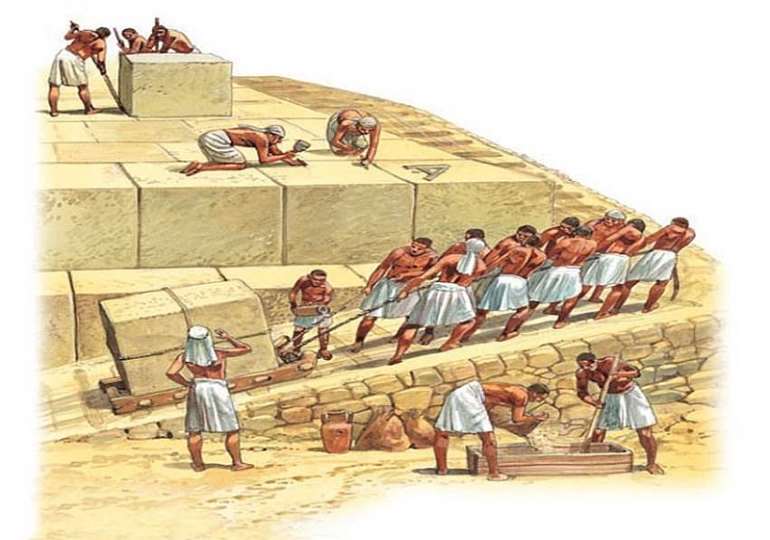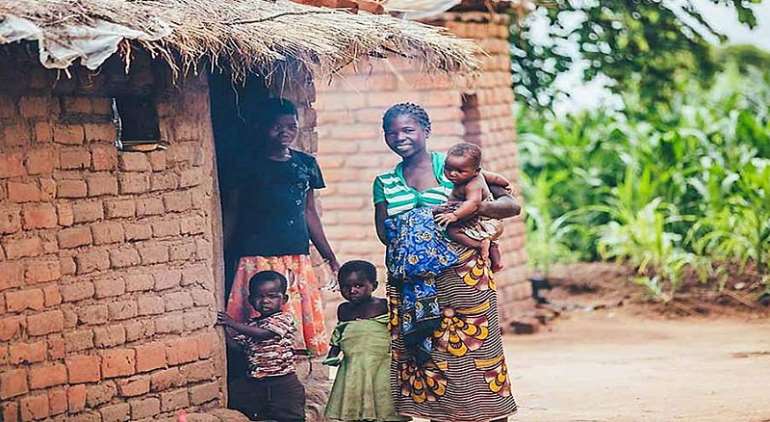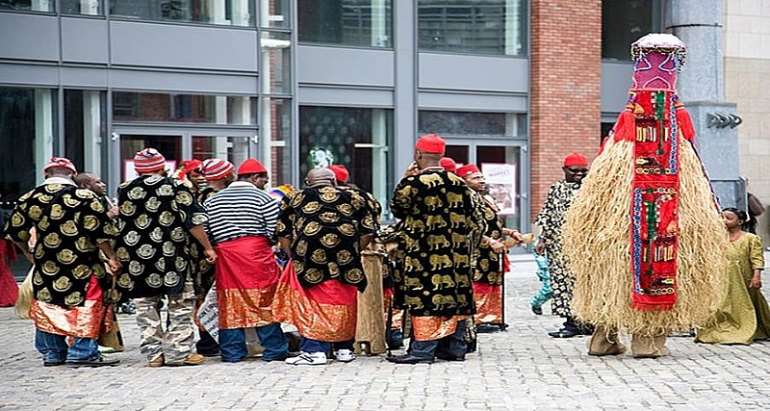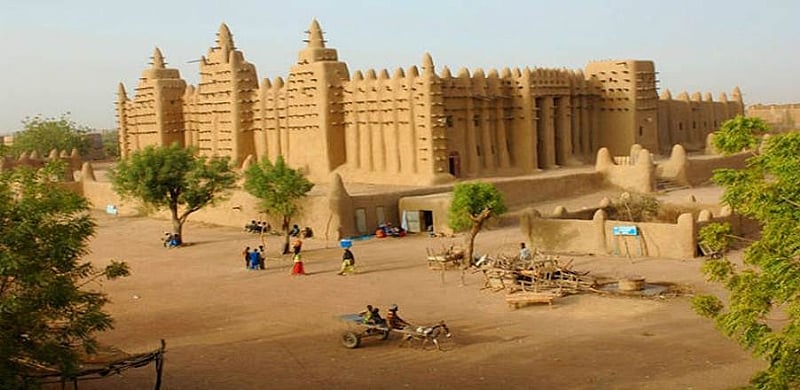Long before the European world emerged from its dark forests and Asian nations consolidated their great dynasties, the Nile Valley civilisation of Africa had already erected marvellous architectural designs that defied common understanding, even to this day. Egypt, with its monumental pyramids and temples, was not merely a kingdom of pharaohs and unknown gods. It was the hub of science and mathematics, of medicine and astronomy. In the highlands of Ethiopia, ancient Abyssinia thrived. Known to the Greeks and Romans as a mysterious and powerful kingdom, Abyssinia was the beacon of trade and diplomacy. It maintained relations with Rome and Persia as its ships sailed the Red Sea and beyond, and its merchants traded ivory, gold, spices, and silk. Even Christianity reached Ethiopia as early as the 4th century, making it one of the world’s oldest Christian nations.
To the west, the kingdoms of Ghana, Mali and Songhai dominated the Sahelian trade- routes. Timbuktu, often romanticised as the “city of gold,” was more significantly the city of scholars. By the 14th century, it was housing one of the greatest libraries of the medieval world, with voluminous manuscripts on subjects that ranged from theology to mathematics and law. The Malian emperor Mansa Musa’s pilgrimage to Mecca in 1324 still remains legendary: he distributed so much gold that he caused inflation in Cairo. Southern Africa also bore witness to sophisticated urban planning and artistry. The ruins of Great Zimbabwe, once home to a powerful Shona kingdom, was an eye-opener to the fact that African architectural ingenuity was not confined to the Nile Valley alone. With walls rising up to 11 meters without mortar, Great Zimbabwe symbolised trade networks that reached even beyond the Indian Ocean. But civilisations rise and fall, and streams that were once mighty dry away. Across the sands, the Great Sphinx of Giza gazed over the ruins, as the sentinel of Africa’s lost genius. Africa, the cradle of man, the birthplace of some of the earliest and most sophisticated civilisations, stands today at a crossroad. Centuries of exploitation, colonialism, and internal strife have taken their toll. But somehow, the continent embodies a promise within its patient spirit: that at the fullness of time, its civilisation will rise again. For, as Africa’s kingdoms had risen, so too had rivalries and internal conflicts spread their wings. Yet, those internal dynamics were only part of the story.

Ancient Egyptian pyramids being built
By the 15th century, European explorers, emboldened by maritime advances, set sail along Africa’s coasts. What began as trade for gold and spices soon turned into a brutal trans-Atlantic slave trade that would strip the continent of millions of its strongest sons and daughters, and for many years render them psychologically impotent. Africa’s social fabric, weakened by slave raids and wars, suffered even more under the yoke of colonialism. The Berlin Conference of 1884–85, at which European powers carved Africa into arbitrary colonies, epitomised the arrogance of the era. African politics, with their complex systems of law and governance were dismissed by the Europeans as “primitive.” Resources were extracted, cultures undermined, and local economies distorted. Systems of education and administration were redesigned to serve colonial interests, not to build independent, self-confident nations. Traditional knowledge was delegitimized, and African identities were fragmented. The seeds of ethnic conflict and economic dependency were sown at that time, and their effects persisted long after independence. The psychological scars ran deep. And they still do.
But beneath the sands of time, Africa’s seeds of greatness lay dormant, awaiting the rains of revival. The mid-20th century saw Africa awaken. From Ghana’s independence in 1957 under Kwame Nkrumah to Algeria’s bloody liberation in 1962, a sense of nationalism swept across the continent. Leaders envisioned a united, modern Africa capable of reclaiming its place on the world stage. Nkrumah spoke of “the African personality,” a rediscovery of the dignity and self-worth of African people. Julius Nyerere’s Ujamaa in Tanzania attempted to adapt socialism to African communal values. In Senegal, Léopold Sédar Senghor celebrated Negritude, the affirmation of Black culture and heritage. Across the continent, arts flourished: writers like Chinua Achebe and Ngũgĩ wa Thiong’o challenged colonial narratives. Musicians like Fela Anikulapo Kuti gave voice to a new African consciousness. Yet, when independence came to most African countries, it came with its own challenges.
Colonial borders grouped disparate ethnicities within artificial states. Economies remained dependent on a single commodity. The Cold War turned Africa into a proxy battlefield, stifling organic development in favour of ideological allegiance. Corruption, military coups, and civil wars derailed progress. The ideal of Pan-Africanism collided with the reality of local politics and external interference. Still, the embers of hope never fully died out, even when in this 21st century, Africa still presented itself as a paradox.

Africa’s poor
On the one hand, images of poverty, conflict, and instability persisted in global media. On the other, Africa’s megacities pulsate with energy. Lagos, Kigali, Johannesburg, Addis Ababa, Nairobi, these were no longer the backwaters but vibrant hubs of finance, technology, and culture. Africa’s population, currently over 1.4 billion, and projected to double by 2050, made it the youngest continent on earth. This demographic dividend presented both a challenge and an opportunity. If properly harnessed, Africa’s youth could drive innovation and economic growth in the near future. If neglected, they could become a source of social unrest.
The digital revolution also began to transform African societies. From mobile money in Kenya to Fintech startups in Nigeria, Africans leapfrogged traditional development models. Rwanda, once synonymous with genocide, reinvented itself as a tech-driven economy with some of the cleanest cities on the continent.
Culturally, Africa’s global influence remained undeniable. Nollywood films captivated millions across the Diaspora. Afrobeats, championed by artists like Burna Boy and Wizkid, filled stadiums from London to New York. African designers and visual artists reshaped fashion and contemporary art scenes worldwide. Moreover, the African Continental Free Trade Area (AfCFTA), launched in 2021, promised to create a unified market of over 1.3 billion people. If successfully implemented, it could unlock intra-African trade, boost industrialisation, and reduce dependency on foreign imports.

Modern Kigali
In many ways, Africa’s renaissance was a return to its ancient spirit. The Nile Valley civilisation valued education, community, and harmony with nature. The traditional African worldview did not often regard wealth as individual accumulation but as a communal resource, an ethic that resonated with contemporary calls for sustainable and inclusive development. African spirituality, often misrepresented or dismissed, was seen to embody a profound respect for the environment, and for the ancestors. In a world grappling with climate change, this philosophy offered insights into more balanced ways of living. As global capitalism confronted the crises of inequality and ecological collapse, Africa’s traditional models of governance, consensus-building, councils of elders, and restorative justice inspired alternatives to adversarial politics.
But, the dream of a renascent Africa could not have been without obstacles. Internally, political instability continued to plague several of its nations, from Sudan to the Democratic Republic of Congo. Corruption was still fastly eroding trust and diverting resources meant for development. The legacy of colonial borders still fuels secessionist movements and ethnic tensions. Externally, Africa remained vulnerable to economic shocks. Global commodity price fluctuations were still devastating national budgets. Debt burdens, often exacerbated by opaque loans, were still limiting fiscal autonomy. Moreover, the scramble for African resources merely shifted from European capitals to Beijing and Washington.
Climate change presented another existential threat. From prolonged droughts in the Sahel to rising sea levels affecting coastal cities like Lagos and Abidjan, Africa was on the frontlines despite contributing the least to global emissions. But even in the face of all these, signs of a new dawn were unmistakable.
Today, Africa boasts some of the fastest-growing economies in the world. Countries like Ghana, Ethiopia, and Côte d’Ivoire have posted impressive growth rates in recent years. Investments in infrastructure, renewable energy, and digital economies suggest a pivot towards sustainable development. Young African entrepreneurs are at the forefront of this transformation. From agricultural innovations that increase food security to AI startups tackling health diagnostics, Africa’s youth are crafting solutions suited to their realities. Women, long marginalised, are stepping into leadership roles across sectors. In politics, business, and civil society, they are complementing patriarchal norms and advocating for genuine inclusive growth. The rise of feminist movements and female-led enterprises signals a more equitable future.

Masquerade display in Diaspora
Diaspora communities are also playing a crucial role. Remittances would normally surpass foreign aid in many countries, while Diaspora professionals bring back skills, capital, and networks. The global “Afropolitan” identity embodies pride in African heritage while it embraces cosmopolitanism. Pan-Africanism, once a dream, articulated by early nationalists, is finding renewed expression. Regional bodies like the African Union, while imperfect, provide platforms for collective decision-making. Initiatives such as the AU’s Agenda 2063 envision an integrated, prosperous, and peaceful Africa. Education remains a cornerstone of this vision. Investments in STEM, vocational training, and indigenous knowledge systems are essential to prepare Africa’s youth for the challenges and opportunities of tomorrow. Cultural diplomacy also holds potential. It is possible that, by jealously sharing Africa’s rich heritage with the world, from ancient manuscripts to contemporary art, the continent can reshape global narratives and assert its intellectual sovereignty. Beyond economic and political renewal lies a spiritual dimension. Africa’s civilisations, from Kemet (ancient Egypt) to Great Zimbabwe, were deeply spiritual societies. The belief in cyclical time — that history moves in recurring patterns rather than linear progress — is central to many African philosophies.
In this view, Africa’s decline is not permanent but a necessary phase before rebirth. As the saying goes, “there is always light at the end of the tunnel.” The hardships of the past centuries can be seen as part of a larger cosmic cycle, preparing Africa for a new age of wisdom and leadership. This spiritual resilience, the faith that tomorrow holds promise no matter how dark today seems, sustains millions across the continent. It inspires artists, motivates activists, and empowers communities. Civilisations rise and fall, but they never truly die. They transform, adapt, and await their season. Africa’s season of greatness is not merely a nostalgic echo of pharaohs and gold-laden caravans. It is an emerging reality being built in the classrooms of Accra, the tech hubs of Nairobi, the music studios of Lagos, and the fields of Kaduna.
The fullness of time is a phrase heavy with hope and patience. It does not suggest a hurried rise but a deliberate, organic resurgence. As Africa continues to confront its challenges with courage and creativity, it weaves together its ancient spirit with modern aspirations. When that fullness arrives, Africa will not just rise, it will lead. And when it does, the world will remember that it all began on the banks of the Nile, under the shadow of the pyramids, and in the bustling markets of Abyssinia. But at the end, Africa’s greatest strength will always remain its people: resilient, innovative, and profoundly human. In their hands lies the continent’s future and perhaps, the peaceful future of the world itself.


